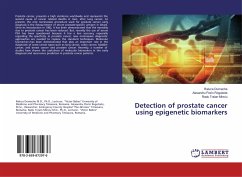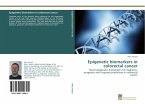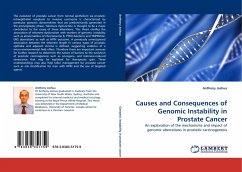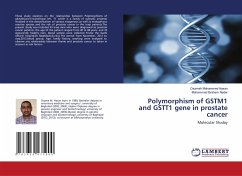Prostate cancer, presents a high incidence worldwide and represents the second cause of cancer related deaths in men, after lung cancer. At present, the only noninvasive procedure used for prostate cancer early diagnosis is the measurement of serum prostate-specific antigen in blood. Since its introduction in 1982, it has been demonstrated that the mortality due to prostate cancer has been reduced. But, recently the use of serum PSA has been questioned because it has a low accuracy, especially regarding the specificity. In prostate cancer, new noninvasive diagnostic approaches are needed to replace the standard techniques. Molecular biomarkers has been demonstrated that play an important role in the diagnostic of some cancer types such as lung cancer, colon cancer, bladder cancer, and breast cancer and prostate cancer. Recently, a number of studies have shown the usefulness of molecular biomarkers in the early diagnosis and recurrence prediction in prostate cancer patients.
Bitte wählen Sie Ihr Anliegen aus.
Rechnungen
Retourenschein anfordern
Bestellstatus
Storno








